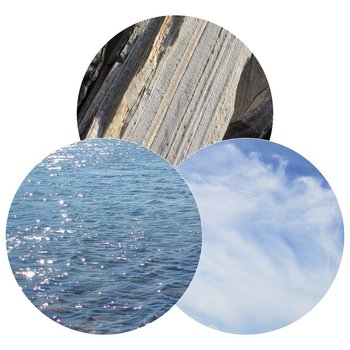Guidelines for Planning Fieldwork
Plan the fieldwork ahead:
- It is a legal requirement to carry out risk assessments: Think through different scenarios of what could happen before you leave. Also take into account having to evacuate the area quickly. Have a realistic action plan ready in case of damage or accidents to equipment or people.
- We are obligated to provide proper instructions: Never use equipment or instruments before an experienced employee from the Department of Geoscience has instructed you in its use.
- Before traveling abroad, you must check with the relevant authorities (e.g. the Ministry of Foreign Affairs and the National Board of Health) whether there are any special conditions or requirements that you should be aware of.
- Be up-to-date on local weather forecasts: If specific activities are not advised (e.g. driving out if there is heavy snow or there is a risk of flooding), this must be respected.
- Check from home that tools, instruments, emergency equipment etc. works as expected.
- If there is a risk of infection with diseases (e.g. when staying in the tropics), it must be investigated whether vaccination is necessary.
- When staying in areas where it is required to carry firearms (e.g. Svalbard and parts of Greenland), a relevant course in weapon handling and first aid/rescue must be completed.
- Safety and emergency equipment must fit the task as well as the user: Lifejackets, helmets, safety glasses, gloves, etc. must be approved and inspected.
- Certain types of field work are "risky" and must therefore not be carried out when you are alone. Agree with the immediate manager and an occupational health and safety representative how it can be handled.
- Consider whether to bring a defibrillator. The department has an extra one that can be borrowed from Charlotte.
Necessary documents:
- Transport documents for dangerous goods must be ordered in good time from AU's safety advisor, this applies, among other things, for diesel, petrol, alcohol, hydrochloric acid etc.
- If you work with dangerous substances, you must always bring an updated safety data sheet. If thework takes place abroad, the documentation must also be available in English.
- Special rules may apply for shipping equipment where special customs and insurance documents are necessary (e.g. Carnet).
- Have a personal driver's license, insurance, health card, possibly passport, visa and other necessary papers on you at all times. THE LIST IS NOT COMPLETE
- If necessary, obtain written permission from the landowner and/or local authorities.
Always bring:
- Charged mobile phone (possibly satellite phone) and extra charged batteries.
- Relevant safety and first aid equipment as well as necessary personal medicine, sunscreen, etc.
- Provisions (food and water) and extra clothes.
- Spare parts and tools to carry out minor repairs yourself.
- If necessary, bring extra fuel.
- Only use authorized equipment suitable for the purpose: Cables, plugs and electrical components must be CE-labelled, grounded and protected by an HFI relay.
Traffic in the area, as well as transport to and from:
Generally:
- Local laws and regulations for traffic always apply.
- Pay extra attention to avoid heavy lifting and other loads when there may not be (technical) aids nearby.
- If sample material is handled or transported from a non-EU country to Denmark, special rules apply.
- If working with electrical components, or if there is a risk of overheating or the development of a fire, suitable fire extinguishing equipment (e.g. fire blanket and a suitable fire extinguisher of suitable volume) must be brought.
- Be sure to handle your own waste: Leave the area clean and tidy.
- We recommend hiking boots and not hiking shoes: They are usually better at supporting the ankle and provide better footing.
At sea:
- While sailing, instructions from the captain and the ship's crew must always be followed.
- Non-slip safety shoes are often required to be worn on ships. In addition, it may be mandatory to use a life jacket, safety line, helmet, hearing protection etc.
- When sailing in an inflatable boat or on rafts, a life jacket, survival suit or similar must always be used.
- If you participate in work tasks on board a ship, you must have an STCW A-VI/1-1 certificate that is valid for 5 years. The course can be completed at North Sea College EUC nordvest, it takes 1-2 days and costs approximately DKK 3500. For permanent employees at the Department of Geoscience, it is mandatory to have a valid STCW A-VI/1-1 certificate if sailing is part of the permanent work tasks (e.g. on Aurora or in cooperation projects with GEUS).
- The prerequisite for participating in STCW A-VI/1-1 is that you have a valid health book. A health book is usually valid for 2 years and costs approximately DKK 1000. The health book is documentation that you have undergone a health check and can work at sea.
On land:
- Use a safety helmet in areas with a risk of falling (e.g. in gravel pits, on slopes and glaciers or under rock overhangs).
- If a hammer, drill or saw is used for sampling, always use safety glasses or a visor and a suitable mask (minimum type P2) if dust develops. Have eyewash equipment available. Use hearing protection if the equipment is noisy.
In the air:
- When operating drones regulations must be followed. Note that local rules may apply.
- For drones that require a certificate the operator must have his/her certificate journalized by the Secretariat.
Upon returning:
- Report any accidents or near-accidents to the occupational health and safety organization at the Department of Geoscience.
- Clean any field equipment.
- Check instruments and emergency equipment before putting them back in storage. If something is not working, the right person should be notified immediately.
